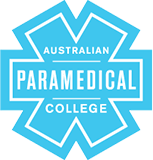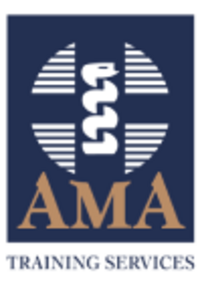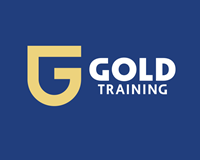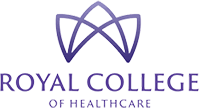
Allied Health courses in Armidale
Course providers in Armidale
The following providers offer Allied Health courses in Armidale.


































































Career Pathfinder
Skills shortages + AI Exposure
Discover in-demand careers and understand how each role may be impacted by AI and automation.
- See in-demand occupations across Australia
- Check AI Exposure ratings
- Compare training duration and average income
Common questions
Occupational therapists help patients perform tasks in daily life, while physiotherapists help patients improve their movement, strength and function. The term occupation refers to everyday life tasks, while physiotherapy refers to physical therapy. Both are science-based allied health roles that aim to improve quality of life through prevention, maintenance and treatment.
 Stephen Charlton
Stephen Charlton
You can become qualified to work as an occupational therapist by completing one of the following degrees, depending on your educational pathway:
- Master of Occupational Therapy (postgraduate degree)
Average duration: 24 months - Bachelor of Occupational Therapy (Honours)
Average duration: 4 years - Bachelor of Occupational Therapy
Average duration: 4 years
 Stephen Charlton
Stephen Charlton
You can become qualified to work as a physiotherapist by completing one of the following degrees, depending on your educational pathway:
- Doctor of Physiotherapy (postgraduate degree)
Average duration: 3 years - Master of Physiotherapy (postgraduate degree)
Average duration: 24 months - Bachelor of Physiotherapy (Honours)
Average duration: 4 years - Bachelor of Physiotherapy
Average duration: 4 years
 Stephen Charlton
Stephen Charlton
Yes, you need to complete an accredited degree to work legally as an occupational therapist or physiotherapist in Australia. The two core pathways are completing a bachelor’s degree or a postgraduate degree. The Occupational Therapy Council of Australia and Australian Physiotherapy Council are responsible for accrediting such courses.
 Stephen Charlton
Stephen Charlton
Yes, overseas-qualified practitioners can work in Australia by registering with the Occupational Therapy Board of Australia or Physiotherapy Board of Australia. Practitioners who are currently registered with the Occupational Therapy Board of New Zealand or Physiotherapy Board of New Zealand can apply directly for Australian registration. Other overseas-qualified practitioners have to fulfil the requirements listed on the relevant webpages of the Occupational Therapy Board of Australia and Physiotherapy Board of Australia.
 Stephen Charlton
Stephen Charlton
If you have already completed an approved degree in a different discipline, you can gain an accredited postgraduate degree to become qualified to work as an occupational therapist or physiotherapist. Examples of such degrees are a Master of Occupational Therapy, Master of Physiotherapy and Doctor of Physiotherapy. Postgraduate degrees in these fields may have additional entry requirements, including but not limited to health-related prerequisite subjects.
 Stephen Charlton
Stephen Charlton
In some cases, completing vocational education and training (VET) in a related discipline can allow you to meet the entry requirements for a bachelor’s degree in these fields. Entry requirements vary between educational providers. Some providers offer a VET entry pathway with a minimum of a Certificate IV, but others require a minimum of a diploma or advanced diploma. Some providers do not offer a VET pathway for these courses at all. Therefore, it’s wise to confirm the entry requirements for your desired bachelor’s degree before starting a VET course.
 Stephen Charlton
Stephen Charlton
In addition to completing an accredited degree, occupational therapists and physiotherapists will need to register with the Occupational Therapy Board of Australia or Physiotherapy Board of Australia to work in Australia. The Australian Health Practitioner Regulation Agency (AHPRA) administers practitioner registration on behalf of these boards. There are different requirements to gain registration for Australian-qualified practitioners, New Zealand-registered practitioners, and other overseas-qualified practitioners.
 Stephen Charlton
Stephen Charlton
Career paths for these professions include independent contracting, starting a practice, working in community care, paediatrics, mental health, rehabilitation, disability, medical or aged care sectors).
 Stephen Charlton
Stephen Charlton
Jobs and Skills Australia reports that the median full-time weekly earnings for occupational therapists and physiotherapists in 2024 are $1,526 and $1,710, respectively. These figures can be contrasted with Australian workers of all occupations, who earn a median full-time weekly income of $1,697.
 Stephen Charlton
Stephen Charlton
There is a significant demand for occupational therapists across Australia. Jobs and Skills Australia’s Occupation Shortage List indicates that the labour market had a shortage of occupational therapists across all states and territories from 2022 to 2024.
 Stephen Charlton
Stephen Charlton
There is substantial demand for physiotherapists in Australia. Jobs and Skills Australia’s Occupation Shortage List indicates that the labour market experienced a shortage of occupational therapists and physiotherapists in most states and territories from 2022 to 2024.
 Stephen Charlton
Stephen Charlton
Working as an occupational therapist or physiotherapist comes with the satisfaction of directly helping to improve patients’ quality of life. Furthermore, the job market is promising, as Jobs and Skills Australia reports there is significant labour market demand for both professions. The future outlook is also positive, as Jobs and Skills Australia reports that the annual employment growth in 2024 for occupational therapists and physiotherapists is 2,200 and 4,100, respectively.
 Stephen Charlton
Stephen Charlton
Further reading


What can you do with a Certificate IV in Allied Health Assistance (Physiotherapy)?
3rd March 2022
What can you do with a Certificate III in Allied Health Assistance?
8th January 2020All courses
- HLT37315 Certificate III in Health Administration
- HLT33021 Certificate III in Allied Health Assistance
- HLT47321 Certificate IV in Health Administration
- HLT47715 Certificate IV in Medical Practice Assisting
- HLT33115 Certificate III in Health Services Assistance
- BSB30120 Certificate III in Business (Medical Administration)
- CHC43315 Certificate IV in Mental Health
- 22656VIC Advanced Diploma of Myotherapy
- Undergraduate Certificate in Health Care Communications
- BSB31115 Certificate III in Business Administration (Medical)
- HLTWHS003 Maintain Work Health and Safety
- Bachelor of Occupational Therapy (Honours)
- Master of Music Therapy
- Bachelor of Social Work (Honours)
More about Allied Health courses
Armidale, located in the picturesque New England region of New South Wales, offers aspiring health professionals a unique opportunity to enhance their skills through a variety of Allied Health courses. With a focus on practical, face-to-face training, students can explore advanced qualifications such as the Bachelor of Medical Studies / Doctor of Medicine and the Bachelor of Science (Honours) (Genetics). These esteemed courses are delivered by the University of New England (UNE), a key provider in Armidale, ensuring that learners receive high-quality education grounded in evidence-based practices.
The Allied Health sector encompasses various specialisations, providing learners in Armidale with the flexibility to focus on their specific interests. Whether you are drawn to Physiotherapy, Nursing, Psychology, or even Aboriginal Health Care, this region has options that cater to both budding professionals and experienced individuals looking to upskill. By engaging with these courses, students can prepare for rewarding careers in various job roles, including those in state hospitals, private practices, and community health organisations.
Armidale’s vibrant community and supportive learning environment make it an ideal location for those interested in pursuing a career in Allied Health. By navigating the diverse offerings on Courses.com.au, you can access an extensive list of training options, allowing you to explore specific areas like Medical Administration, Audiology, and even Aromatherapy. Equip yourself with the knowledge and skills necessary to thrive in this dynamic field right from the heart of Armidale!
